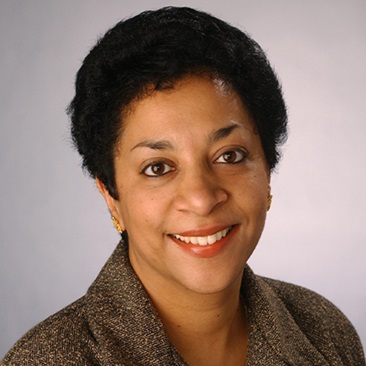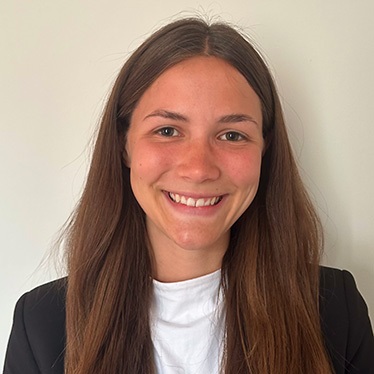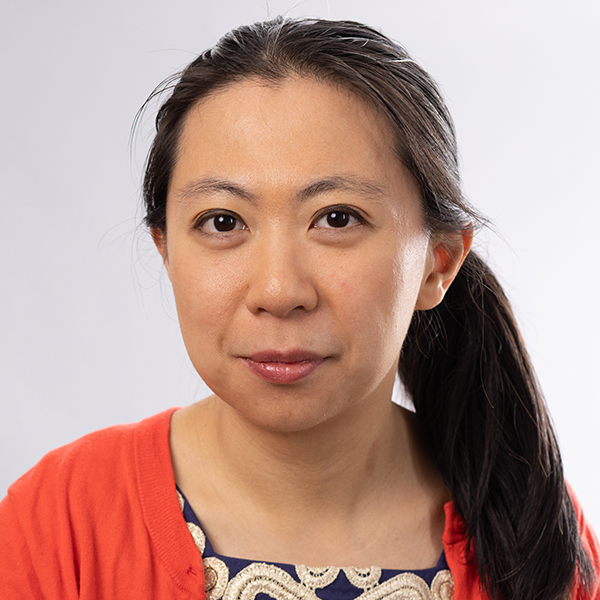full-time faculty teaching and conducting research in political science
of Maxwell faculty conduct research focused outside of the U.S.
graduate students in residence; fewer than 12 admitted each year
Undergraduate Studies
Graduate Studies

I am Maxwell.
Civic engagement is a core value for me. I have always aspired to help the communities I’m from.” Mazaher Kaila, a Maxwell alumna and third-year student at Syracuse University's College of Law, moved with her family from Sudan to Central New York when she was four years old. “I realized that to make meaningful change in society, I needed to understand the systems that power it—government and politics—and that’s insight I would gain by studying political science.”
Mazaher Kaila ’19, L’22
political science, law
Margarita Estévez-Abe Named McClure Professor of Teaching Excellence
July 19, 2023
The associate professor of political science specializes in comparative political economy and will oversee the MAX courses.
Margarita Estévez-Abe, associate professor of political science and O’Hanley Faculty Scholar, has been named the Robert D. McClure Professor of Teaching Excellence.
Established in 2016, the McClure Professorship supports teaching excellence and research and is awarded for a three-year term. The faculty member who holds the professorship directs the Maxwell School’s suite of signature MAX courses, including Critical Issues in the U.S., Global Community, and Quantitative Analysis for the Social Sciences. The team-taught courses provide undergraduates with a broad, interdisciplinary introduction to public and international affairs, citizenship, and qualitative and quantitative approaches to social and policy analysis.
“MAX courses offer a unique opportunity for undergraduate students to experience and learn from a wide-range of disciplines and diverse perspectives,” says Estévez-Abe, who has a multicultural background, having been raised in Asia and Europe. She believes that familiarity with more than one culture and one perspective is a requirement for global citizenship and she hopes that MAX courses will help students achieve it.
Estévez-Abe specializes in the comparative political economy of advanced industrial countries with an interest in how political and economic institutions are constructed differently across countries and their varying effects on politics and ordinary people’s lives. She has taught courses on topics such as comparative politics, comparative politics of gender, comparative welfare states, and democracy. Before joining Syracuse University, she taught at Harvard University.
She is co-director of the Center for European Studies. Her publications include an award-winning book, “Welfare and Capitalism in Postwar Japan” (Cambridge University Press, 2008) and two edited volumes, “Outsourcing Domestic Work (Care): The Politics, Policies and Political Economy” and “Beyond Familialism: Recalibrating Family, State and Market in Southern Europe and East Asia.”
The McClure Professorship is funded by a gift from John L. and Stephanie G. Palmer, with additional support from members of the Maxwell School Advisory Board, alumni and friends of the school. The award is named in recognition of Robert McClure’s long-standing commitment to undergraduate education, including his leadership in creating the MAX courses while serving as Maxwell’s senior associate dean.
McClure, professor emeritus of political science and public affairs, taught in Maxwell for 45 years. Over the course of his career, he served as senior associate dean in Maxwell for 13 years and as director of the Syracuse University Honors Program for three years. He retired in 2014.
By Sophia Moore
Published in the Fall 2023 issue of the Maxwell Perspective
Related News
School News

Jul 29, 2024
School News

Jun 21, 2024
School News

May 15, 2024
School News

Apr 2, 2024
BaoBao Zhang Joins First Cohort of AI2050 Early Career Fellows
One of only 15 scholars chosen from across the U.S., Zhang will receive up to $200,000 in research funding over the next two years. Zhang will use the funding to partner with the nonprofit, non-partisan Center for New Democratic Processes to test whether public participation in AI governance is increased through the creation of public assemblies, known as “deliberative democracy workshops.”
Baobao Zhang
Assistant Professor, Political Science Department

Margarita Estévez-Abe Named McClure Professor of Teaching Excellence
July 19, 2023
The associate professor of political science specializes in comparative political economy and will oversee the MAX courses.
Margarita Estévez-Abe, associate professor of political science and O’Hanley Faculty Scholar, has been named the Robert D. McClure Professor of Teaching Excellence.
Established in 2016, the McClure Professorship supports teaching excellence and research and is awarded for a three-year term. The faculty member who holds the professorship directs the Maxwell School’s suite of signature MAX courses, including Critical Issues in the U.S., Global Community, and Quantitative Analysis for the Social Sciences. The team-taught courses provide undergraduates with a broad, interdisciplinary introduction to public and international affairs, citizenship, and qualitative and quantitative approaches to social and policy analysis.
“MAX courses offer a unique opportunity for undergraduate students to experience and learn from a wide-range of disciplines and diverse perspectives,” says Estévez-Abe, who has a multicultural background, having been raised in Asia and Europe. She believes that familiarity with more than one culture and one perspective is a requirement for global citizenship and she hopes that MAX courses will help students achieve it.
Estévez-Abe specializes in the comparative political economy of advanced industrial countries with an interest in how political and economic institutions are constructed differently across countries and their varying effects on politics and ordinary people’s lives. She has taught courses on topics such as comparative politics, comparative politics of gender, comparative welfare states, and democracy. Before joining Syracuse University, she taught at Harvard University.
She is co-director of the Center for European Studies. Her publications include an award-winning book, “Welfare and Capitalism in Postwar Japan” (Cambridge University Press, 2008) and two edited volumes, “Outsourcing Domestic Work (Care): The Politics, Policies and Political Economy” and “Beyond Familialism: Recalibrating Family, State and Market in Southern Europe and East Asia.”
The McClure Professorship is funded by a gift from John L. and Stephanie G. Palmer, with additional support from members of the Maxwell School Advisory Board, alumni and friends of the school. The award is named in recognition of Robert McClure’s long-standing commitment to undergraduate education, including his leadership in creating the MAX courses while serving as Maxwell’s senior associate dean.
McClure, professor emeritus of political science and public affairs, taught in Maxwell for 45 years. Over the course of his career, he served as senior associate dean in Maxwell for 13 years and as director of the Syracuse University Honors Program for three years. He retired in 2014.
By Sophia Moore
Published in the Fall 2023 issue of the Maxwell Perspective
Related News
School News

Jul 29, 2024
School News

Jun 21, 2024
School News

May 15, 2024
School News

Apr 2, 2024
